
International Journal of Machine Learning and Cybernetics
Scope & Guideline
Unlocking the Future of Machine Learning and Cybernetics
Introduction
Aims and Scopes
- Machine Learning Algorithms and Techniques:
The journal emphasizes novel algorithms and methodologies in machine learning, including supervised, unsupervised, and reinforcement learning techniques. - Applications of Machine Learning in Cybernetics:
Research exploring the application of machine learning techniques within cybernetic systems, such as robotics, automation, and control systems, is a core focus. - Data-Driven Decision Making:
Studies that utilize machine learning methods to improve decision-making processes across various sectors, including healthcare, finance, and smart cities, are prominently featured. - Interdisciplinary Approaches:
The journal encourages interdisciplinary research that combines insights from machine learning, cybernetics, and other fields such as psychology, sociology, and economics. - Real-World Systems Modeling:
Papers that focus on modeling complex real-world systems using machine learning and cybernetic principles are valued, particularly those that address system dynamics and behavior.
Trending and Emerging
- Federated Learning and Privacy-Preserving Techniques:
As data privacy concerns grow, research on federated learning and privacy-preserving machine learning has surged, focusing on collaborative learning without compromising sensitive information. - Explainable AI (XAI):
There is an increasing emphasis on explainable AI, where researchers are developing methods to make machine learning models more interpretable and accountable, addressing the need for transparency. - Multi-Modal Learning:
Research that integrates multiple data modalities (e.g., text, image, audio) is gaining traction, reflecting a shift towards more holistic approaches to data analysis. - Cybersecurity Applications:
With the rise of cyber threats, studies exploring machine learning applications in cybersecurity, including anomaly detection and intrusion prevention, are becoming increasingly relevant. - Sustainability and Environmental Applications:
The journal is witnessing a growing interest in applying machine learning to sustainability challenges, including climate modeling, resource management, and environmental monitoring.
Declining or Waning
- Traditional Statistical Methods:
There has been a noticeable decline in papers focusing solely on traditional statistical methods, as the journal shifts towards more advanced machine learning techniques. - Basic Theoretical Frameworks:
Research that primarily discusses theoretical aspects without practical applications is waning, with a trend towards applied research that demonstrates real-world impacts. - Single-Domain Studies:
Papers that focus narrowly on a single domain without interdisciplinary connections are becoming less common, as the journal favors research with broader implications across multiple fields.
Similar Journals
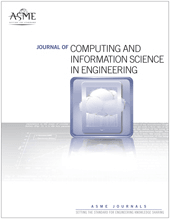
JOURNAL OF COMPUTING AND INFORMATION SCIENCE IN ENGINEERING
Fostering Interdisciplinary Collaboration for a Smarter TomorrowWelcome to the JOURNAL OF COMPUTING AND INFORMATION SCIENCE IN ENGINEERING, a premier publication from ASME that focuses on the dynamic intersection of computing and engineering disciplines. With an ISSN of 1530-9827 and E-ISSN 1944-7078, this journal serves as a critical platform for disseminating innovative research and advancements in areas such as Computer Graphics, Computer-Aided Design, Software Engineering, and Industrial Manufacturing. The journal spans from 2001 to 2024 and has been recognized for its excellence, boasting impressive Scopus rankings including Q1 in Industrial and Manufacturing Engineering and Q2 in both Computer Graphics and Computer Science Applications. It offers a unique opportunity for researchers, professionals, and students to engage with high-impact studies and present their contributions to a diverse audience. As a member of the esteemed ASME family, this journal promotes open dialogue and fosters the growth of knowledge in technical fields, while emphasizing practical applications and interdisciplinary collaboration. Join us in exploring the forefront of computing and engineering through rigorous research and insightful articles that drive innovation and progress.
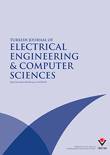
Turkish Journal of Electrical Engineering and Computer Sciences
Fostering Collaboration Across DisciplinesThe Turkish Journal of Electrical Engineering and Computer Sciences, published by the esteemed Tubitak Scientific & Technological Research Council of Turkey, serves as a pivotal platform for disseminating high-quality research in the interdisciplinary fields of electrical engineering and computer science. With an ISSN of 1300-0632 and an E-ISSN of 1303-6203, this journal spans a rich publication history from 1996 to 2024, contributing significantly to its field with a reputable standing in the Scopus rankings. The journal is categorized within the Q3 quartile for both Computer Science and Electrical and Electronic Engineering, reflecting its commitment to scholarly excellence, as evidenced by its rankings—#111 out of 232 in General Computer Science and #420 out of 797 in Electrical and Electronic Engineering. Aimed at researchers, professionals, and students, it encourages contributions that advance knowledge and foster innovation, bridging gaps between theoretical advancements and practical applications. With a strategic focus on open access, it ensures that critical findings are available to a global audience, enhancing the visibility and impact of research efforts originating from Turkey and beyond. This journal is not only a repository of knowledge but also a catalyst for collaborative research in a rapidly evolving technological landscape.
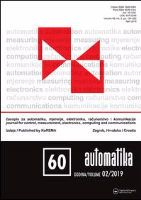
Automatika
Catalyzing Discoveries in Control and Systems EngineeringAutomatika is a renowned academic journal dedicated to the fields of Computer Science and Control and Systems Engineering, published by TAYLOR & FRANCIS LTD. Since its establishment, this journal has embraced an Open Access model, enabling researchers worldwide to disseminate and access high-quality research freely since 2001. With an ISSN of 0005-1144 and an E-ISSN of 1848-3380, Automatika plays a pivotal role in fostering innovation and disseminating knowledge in its domain. The journal is recognized for its contributions to expanding the understanding of complex systems and computational methodologies, proudly holding a Q2 ranking in Computer Science and a Q3 ranking in Control and Systems Engineering according to the latest category quartiles. Its influence is exemplified through a Scopus ranking of #83/232 in General Computer Science and #127/321 in Control and Systems Engineering, placing it well within the top percentiles of its field. The journal is based in the United Kingdom and continues to converge towards its goal of advancing the frontiers of research from 2009 to 2024, making it an essential resource for researchers, professionals, and students aiming to stay at the cutting edge of technological advancements.

PROGRAMMING AND COMPUTER SOFTWARE
Elevating the Standards of Programming Knowledge Since 1978PROGRAMMING AND COMPUTER SOFTWARE is a distinguished journal committed to advancing the field of software development and programming methodologies. Published by PLEIADES PUBLISHING INC, this journal has been a valuable resource since its inception in 1978, reaching out to researchers, professionals, and students alike. With an emphasis on rigorous peer-reviewed articles, the journal holds a Q3 ranking in the realm of Software according to the latest 2023 Category Quartiles. Though it does not offer open access, the journal ensures that high-quality research is disseminated to its audience, providing insights into evolving programming techniques, software engineering challenges, and innovative solutions. With its convergence of years extending to 2024, PROGRAMMING AND COMPUTER SOFTWARE remains a pivotal publication, fostering a deeper understanding of the complexities in computer programming while supporting the broader software community.
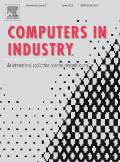
COMPUTERS IN INDUSTRY
Driving operational excellence with cutting-edge research.COMPUTERS IN INDUSTRY is a premier journal published by Elsevier, dedicated to the exploration and advancement of the intersection between technology and industrial applications. With a history spanning from 1979 to 2024, this high-impact journal holds prestigious Q1 rankings in both Computer Science and Engineering, showcasing its significant contribution to the fields of general engineering and computer science. Notably, it ranks #4 out of 307 journals and #9 out of 232 journals in their respective categories on Scopus, placing it in the top 2% of publications worldwide. Although it is not an Open Access journal, it continues to serve as a vital resource for researchers, professionals, and students seeking in-depth insights and innovative research findings in industrial computing. The journal’s objective is to publish high-quality, peer-reviewed articles that advance the understanding and application of computer systems in industrial environments, reaffirming its crucial role in driving technological progress and operational efficiency.

INTERNATIONAL JOURNAL OF COMPUTER VISION
Illuminating the Path of AI and Visual Recognition.INTERNATIONAL JOURNAL OF COMPUTER VISION, published by Springer, is a premier peer-reviewed journal that stands at the forefront of the fields of Computer Vision and Artificial Intelligence. With a remarkable impact factor and rankings placing it in the Q1 category across key areas such as Computer Vision and Pattern Recognition, as well as Software, this journal serves as an essential resource for researchers, professionals, and students alike. Since its inception in 1987, it has aimed to advance the understanding and methodologies within the rapidly evolving landscape of computer vision technologies. Its location in the Netherlands underlines its international significance, and with Scopus rankings placing it in the top percentiles of its categories, the journal is recognized for its contribution to groundbreaking research and innovative applications. Although it is not an open-access journal, it still provides extensive access options through institutional and personal subscriptions, offering its readers in-depth insights and findings pivotal to their work in artificial intelligence and computational technologies.

International Journal of Intelligent Computing and Cybernetics
Pioneering Interdisciplinary Insights in Computing and CyberneticsThe International Journal of Intelligent Computing and Cybernetics, published by EMERALD GROUP PUBLISHING LTD, serves as a pivotal platform for advancing the field of intelligent computing and cybernetics since its inception in 2008. With a strong focus on innovative research and interdisciplinary collaboration, this journal is positioned in the prestigious Q2 category of Computer Science, ranking at an impressive 42nd out of 232 in Scopus, reflecting an 82nd percentile performance. The journal provides a venue for scholars and practitioners to disseminate their findings on cutting-edge technologies and methodologies that bridge the realms of computing, artificial intelligence, and cybersecurity. Although currently not an open-access journal, it widely circulates valuable insights essential for driving forward academic discourse and practical applications in the rapidly evolving digital landscape. Researchers, professionals, and students are encouraged to engage with this journal to stay at the forefront of advancements in intelligent systems and cybernetic solutions.

Machine Intelligence Research
Driving Knowledge Forward in Machine IntelligenceMachine Intelligence Research is a premier academic journal published by SPRINGERNATURE, dedicated to advancing knowledge in the rapidly evolving fields of Artificial Intelligence, Applied Mathematics, and more. With its ISSN 2731-538X and E-ISSN 2731-5398, the journal is recognized for its impact, holding a distinguished position in various Q1 categories for 2023, including Computer Vision and Pattern Recognition and Control and Systems Engineering. Operating under an Open Access model, it ensures that groundbreaking research from China and around the world remains accessible to a global audience, promoting collaboration and innovation. As a beacon for researchers, professionals, and students, Machine Intelligence Research aims to disseminate high-quality research findings, innovative methodologies, and influential theories, thereby shaping the future landscapes of science and technology.
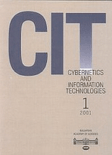
Cybernetics and Information Technologies
Fostering Collaboration in Cutting-Edge ResearchCybernetics and Information Technologies is a pivotal academic journal, published by the Institute of Information and Communication Technologies at the Bulgarian Academy of Sciences. With its Open Access policy established since 2012, this journal facilitates wide dissemination of cutting-edge research across the field of computer science, particularly in the intersections of cybernetics and information technology. Indexed in Scopus, it holds a commendable position within the Q3 quartile for 2023, ranking #103 of 232 in the category of General Computer Science, placing it within the 55th percentile and attesting to its growing influence among peer publications. The journal not only aims to publish high-quality research but also seeks to foster a collaborative platform for academicians, practitioners, and students to advance the domain of computational technologies. With a focus on innovative methodologies and applications, Cybernetics and Information Technologies remains committed to addressing current challenges and exploring the future landscape of technology and information systems.

Machine Learning and Knowledge Extraction
Connecting Minds to Foster Knowledge in Machine LearningMachine Learning and Knowledge Extraction, published by MDPI, is an esteemed Open Access journal that has been at the forefront of disseminating cutting-edge research since its inception in 2019. Based in Switzerland, this journal has established itself as a significant contributor to the fields of Artificial Intelligence and Engineering, currently ranking in the Q2 category in Artificial Intelligence and Q1 in Engineering (miscellaneous) for 2023. With a notable Scopus ranking, it holds the 35th position out of 204 in Engineering, placing it in the 83rd percentile, while it ranks 127th out of 350 in Computer Science, reaching the 63rd percentile. Machine Learning and Knowledge Extraction serves as a vital platform for researchers, professionals, and students alike, promoting insightful discussions, innovative methodologies, and profound discoveries in machine learning and data extraction techniques. The journal's open access model ensures that groundbreaking research is widely accessible, fostering collaboration and advancing knowledge across various disciplines.